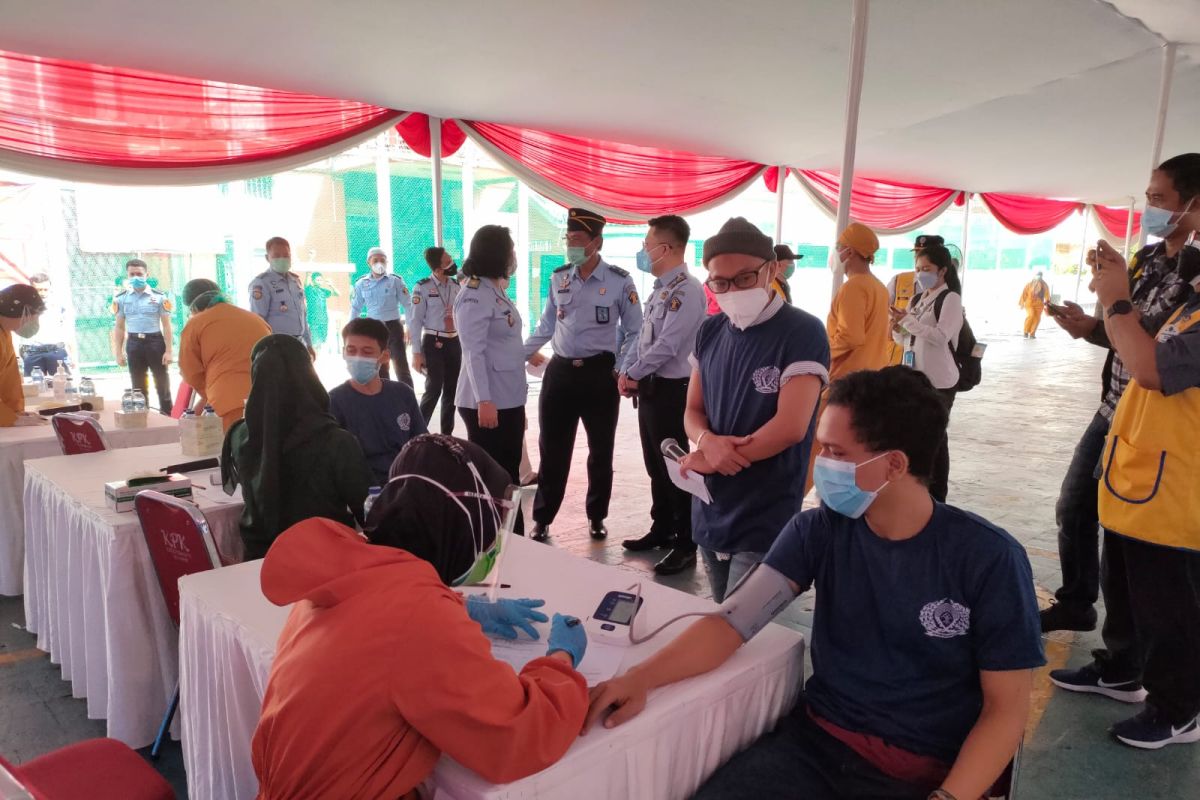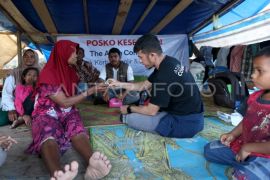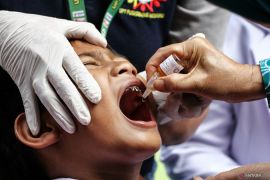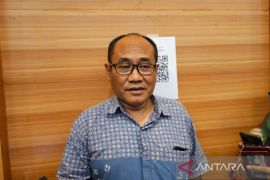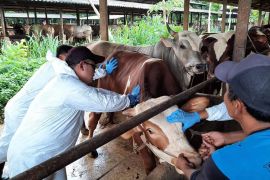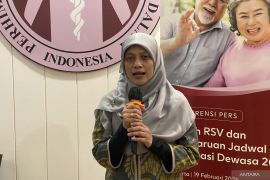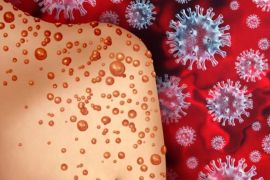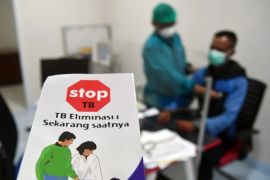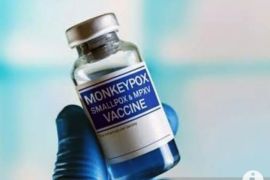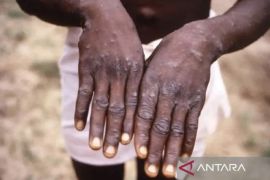Those who could not get their vaccine because they have no identification number, they will wait for the next process so they can get their first vaccine shotJakarta (ANTARA) - Who would have thought that the insidious grasp of the coronavirus would extend beyond people with high mobility?
The Delta variant, described by scientists as the strongest and fastest coronavirus variant so far, has already shown its deadliness and has spread quickly among people, even those living in solitary confinement.
According to the US Centers for Disease Control and Prevention, the Delta variant can transmit rapidly, like chicken pox, particularly in populations with low vaccination rates.
Thus, the need for vaccination is not limited to public officials or people with high mobility rates.
It is also crucial for those who cannot move freely, such as people lodged in jails and correctional facilities, to build herd immunity to prevent severe infections.
The government, which has continued to push vaccinations, is aiming to achieve herd immunity in Jakarta by August 2021.
To inoculate 7.5 million residents, the vaccination process has been divided into stages. After healthcare workers, public officials, workers at private companies, and housewives, inmates of jails and correctional facilities in Jakarta are now being vaccinated.
Vaccinations in prisons and correctional facilities have been a priority for a while now due to the fact that they have become quite overcrowded.
Salemba Jail was intended to house 1,500 inmates, yet it has been forced to accept 3,200 inmates. Thus, it is filled to more than twice its capacity.
The risk of virus transmission is high in prisons and correctional facilities because cells that are meant for one inmate are now holding three to four inmates. Same goes for larger cells: 20 inmates are often locked up in a cell meant for just 7 inmates.
During the peak of the COVID-19 wave in Jakarta in July 2021, at least 20 inmates in Salemba Jail had contracted the disease.
Given how the activities of inmates are restricted to just two places -- behind the cells and within the prison yard -- the spread of coronavirus cases has come as a surprise.
Besides, most prisons have been enforcing health protocols, with officers constantly reminding inmates to keep cells clean, wash hands at the provided stations, and wear masks when visiting the clinic or exiting their cells.
In addition, the inmates in Salemba Jail have not met their families or close friends for almost a year now. All meetings have also been shifted completely online.
"I think they were infected by (an) officer. Because there's no visitation. The officers often go to cell blocks for monitoring, maybe there was contact there," Yusman Akbar Turatea from Salemba Jail Clinic said.
The doctor also said that 30 officers in Salemba Jail had contracted COVID-19 in July, and some of them are still in self-isolation.
Inmates with mild COVID-19 symptoms are currently being treated at Pengayoman Hospital in Cipinang, East Jakarta, Turatea informed. The remaining inmates have been placed in the self-isolation chamber in Salemba Jail, which can accommodate up to 150 patients, he said.
At present, there have been no new cases among inmates and therefore, most have returned to their cell blocks.
And yet, there is no guarantee that the same thing would not happen again, Turatea noted. The main concern now is potential spread of infections between inmates, cells, and blocks, he added.
Vaccination
The first Monday of August 2021 dawned clear and bright. It was the perfect day for holding the first stage of vaccinations for 2,413 inmates in Salemba Jail.
From 9 a.m. local time, the names of inmates began to be called out. At the registration site, the inmates filled out their information and disclosed whether they had any health conditions.
Some chatted with each other, while some others copied another inmates' form. Officers had been assigned to help the inmates when needed.
Just like during vaccination programs for the general public, health workers checked the blood pressure of inmates to ensure they were fit to receive their first Sinovac dose.
Tattoos were no indication of the bravery of inmates against needles. Some knitted their brows as the needle went in, while some shut their eyes hoping to get vaccination over with it quickly.
Out of the 760 inmates inoculated that day, one stood out the most.
John Kei, who was convicted of premeditated murder, said he takes insulin shots for low blood sugar and blood pressure medication everyday.
During the health check for the vaccination, his blood pressure reading was 160/85 and he had standard blood sugar count.
As he prepared the vaccine, the medic was slightly perturbed to see Kei's left arm, which was covered in tattoos.
"Whoa, the tattoo is so big, it is kind of hard to see the needle's tip. Hang in there, Sir," one of the medics joked as Kei received the shot.
After the vaccination, Kei greeted reporters and relayed a message for other inmates.
"I remind all inmates in Indonesia. Let's support the government's vaccination program," he said.
Related news: Amid COVID spread, 'semi-lockdown' expanded to 21 provinces
"I think vaccination is necessary. After I get vaccinated, even if I get (infected with) COVID-19, my immune system will be strong. Away from vaccination means closer to death. So if (you) wanna be healthy, get vaccinated," he remarked.
Unlike Kei, Yohanis Varianto said he had cause for complaint. According to him, 843 inmates of Salemba Jail could not get their shots.
"Those who could not get their vaccine because they have no identification number, they will wait for the next process so they can get their first vaccine shot," Varianto elaborated.
Earlier, head of the Salemba Jail had stressed on the importance of vaccination to allay concerns on the vaccine's side-effects that many inmates had raised.
He told them vaccination is a must for all sorts of public activities, be it transportation, economic activities, or religious activities.
Related news: Indonesia upbeat of securing COVID-19 vaccine supplies for August
Face to Face
Another inmate, Yanto (35), said he was grateful to take part in the government's vaccination program.
"So happy I (can be) vaccinated. It means that the nation still cares about us, even though we are convicted," he said.
Yet another inmate, Kamaludin (40), confessed that he was relieved after getting the vaccine, and pointed to the high potential for COVID-19 transmission in cells.
He said he felt no side-effects post vaccination and expressed the hope that once the vaccination program is complete, inmates would be allowed to have visitors again.
For a year now, Salemba Jail has shifted visitations to online platforms.
Related news: 3.5 million doses of Moderna from US govt arrive in Jakarta
Visitors need to register through an application, provide personal information such as their name, the name of the inmate they would like to get in touch with and the conviction, as well as their WhatsApp number.
An officer arranges a video call on the registered day. Since the active cases in Indonesia are still high, face-to-face visitations are still prohibited.
"We hope visitation hours make a comeback, (so we) can meet others, since there's no visitation hours," Kamaludin said.
Even though the inmates are hidden behind towering walls, the coronavirus can still reach them easily.
Therefore, the government and public officials are conducting vaccination programs so that 17 thousand inmates in the capital can remain protected from a severe infection.
Related news: House Speaker presses for evaluating effectiveness of PPKM enforcement
Related news: Beware of high interest rate instruments: OJK
Translator: Mentari D G, Mecca Yumna
Editor: Fardah Assegaf
Copyright © ANTARA 2021
